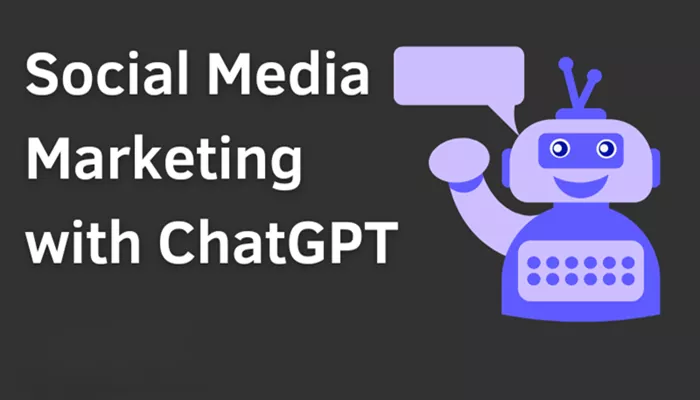In today’s fast-paced digital world, social media marketing plays a crucial role for businesses, content creators, and marketers alike. However, consistently generating fresh, engaging content and managing audience interactions can be a demanding task. ChatGPT, an advanced AI language model developed by OpenAI, emerges as a powerful tool that can significantly enhance the efficiency and creativity of social media marketing efforts. This article explores how ChatGPT helps marketers create compelling content, boost user engagement, and streamline workflows, while also addressing its limitations and practical usage tips.
What Is ChatGPT and How Does It Work?
ChatGPT is an AI-based language model that can generate human-like text based on the input it receives. By understanding context and prompts, ChatGPT produces natural, fluent responses that can be used to write posts, reply to comments, brainstorm ideas, or create scripts. This technology drastically reduces the time spent on repetitive writing tasks, freeing marketers to focus on strategy and innovation.
The model leverages vast amounts of training data to mimic various writing styles and tones. This flexibility allows it to tailor content for different social media platforms such as Instagram, Twitter, LinkedIn, and Facebook. Whether you need a catchy headline, a detailed article, or a friendly comment reply, ChatGPT can deliver with impressive speed and consistency.
What Are the Key Benefits of Using ChatGPT in Social Media Marketing?
One of the most significant advantages of ChatGPT is the ability to save time and resources. Social media managers often juggle multiple channels and deadlines, making content creation a bottleneck. ChatGPT can generate diverse content types quickly, including post ideas, captions, hashtags, and responses. This automation reduces the workload and accelerates publishing schedules.
Creativity is another area where ChatGPT shines. When marketers face writer’s block, the AI offers fresh perspectives and innovative themes. It can suggest unique campaign concepts or rephrase messages in different tones to keep audiences engaged. This creative support helps brands stand out in crowded digital spaces.
User engagement also improves with ChatGPT. The model enables personalized replies to followers, crafting messages that feel more authentic and timely. Interactive posts such as polls or quizzes can be generated to stimulate participation, strengthening the relationship between brands and their communities.
Moreover, ChatGPT optimizes content for various platforms by adapting language and style. A LinkedIn post can be professional and concise, while a Twitter message might be witty and brief. Ensuring that content fits the norms of each platform enhances effectiveness and reach.
Maintaining brand consistency is essential for building recognition and trust. ChatGPT can assist in establishing a uniform voice and messaging across all channels. It also helps plan content calendars by generating topic ideas aligned with marketing goals, keeping campaigns organized and coherent.
What Are the Limitations of ChatGPT in Marketing Applications?
Despite its many strengths, ChatGPT has some limitations marketers should be aware of. The AI does not have real-time access to current events or trends unless integrated with up-to-date data sources. Therefore, marketers must verify the relevance and accuracy of generated content to avoid outdated information.
Originality can sometimes be a challenge. Since ChatGPT learns from existing texts, some output may lack uniqueness or feel generic. Detailed and precise prompts can improve creativity, but human review remains crucial to ensure content originality and brand alignment.
Emotional nuance and cultural sensitivity may also be limited. ChatGPT might not fully grasp complex social contexts or subtle emotional cues, which are often critical in customer communications. Human oversight is necessary to fine-tune messaging for tone and appropriateness.
How to Maximize the Effectiveness of ChatGPT in Social Media Strategies?
To get the best results from ChatGPT, marketers should integrate the tool thoughtfully into their social media strategies. The first step is to clearly define target audiences and marketing objectives. ChatGPT can then help analyze user personas and competitive landscapes to uncover content gaps and opportunities.
During content creation, marketers should experiment with diverse prompts to generate a variety of post formats and tones. Reusing successful themes and storytelling techniques can strengthen brand narratives. ChatGPT can also assist in drafting scripts for videos or podcasts, expanding the range of content types.
Interaction management is another area where ChatGPT proves valuable. It can quickly generate replies to comments and direct messages, maintaining timely engagement with followers. Crafting interactive features such as quizzes or surveys helps deepen audience involvement and loyalty.
Regular evaluation and adjustment are important. Marketers should monitor engagement metrics and feedback to refine ChatGPT prompts and content strategies continuously. Combining AI efficiency with human creativity and judgment produces the most impactful social media campaigns.
Why Should Marketers Consider Using ChatGPT Today?
In an era where content is king and speed is essential, ChatGPT offers marketers a unique advantage. It not only alleviates the pressure of constant content demands but also fuels creativity and connection. By automating routine writing and supporting strategic planning, ChatGPT allows marketers to focus on growing their brands and fostering meaningful relationships with audiences.
While it is not a perfect replacement for human expertise, ChatGPT is a powerful assistant that enhances productivity and innovation. For businesses aiming to keep up with evolving digital trends, adopting AI tools like ChatGPT is becoming less of an option and more of a necessity.
If you want to improve your social media marketing efficiency and creativity, exploring ChatGPT is a wise move. Whether you are managing a small business, running a personal brand, or overseeing large-scale campaigns, this AI can help transform your approach and deliver measurable results.
Related Topics
- Brands Must Adapt to Gen Z’s Social Media Search Habits
- NEA Appoints New Social Media Agency
- What Is Tesla’s Social Media Marketing Strategy?

